NEWSNEWS
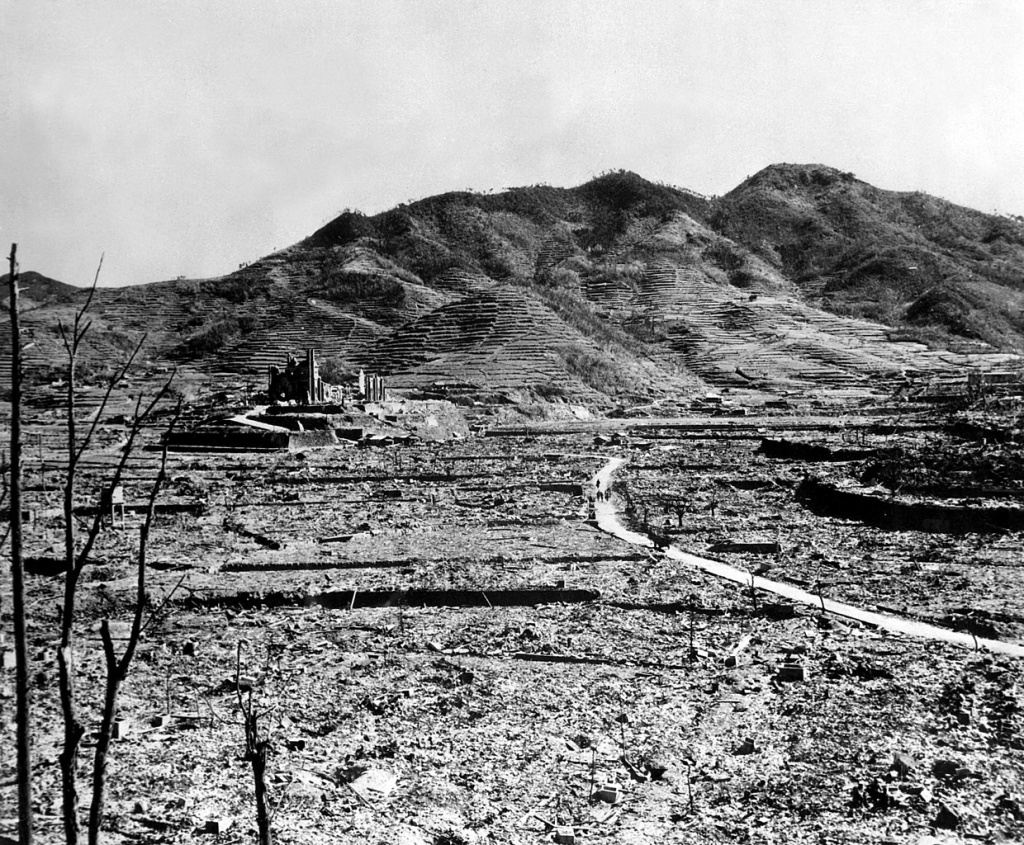
U.S. National Archives, 1945. 77-AEC-52-4459.
The Political Reckoning in a Post-Nuclear Use Landscape
Rabia Akhtar
July 11, 2024
This report is simultaneously published by the Asia-Pacific Leadership Network, Nautilus Institute, and the Research Center for Nuclear Weapons Abolition, Nagasaki University (RECNA).
It was first published in the Journal for Peace and Nuclear Disarmament.
Acknowledgements: This article was commissioned by the Asia-Pacific Leadership Network.
Abstract
Keywords: nuclear weapons; Asia-Pacific; North Korea; arms control; deterrence
Authors’ Profile:
Full text (PDF) is here.
The views represented herein are the author’s own and do not necessarily reflect the institutional positions.
The page for this project is here.

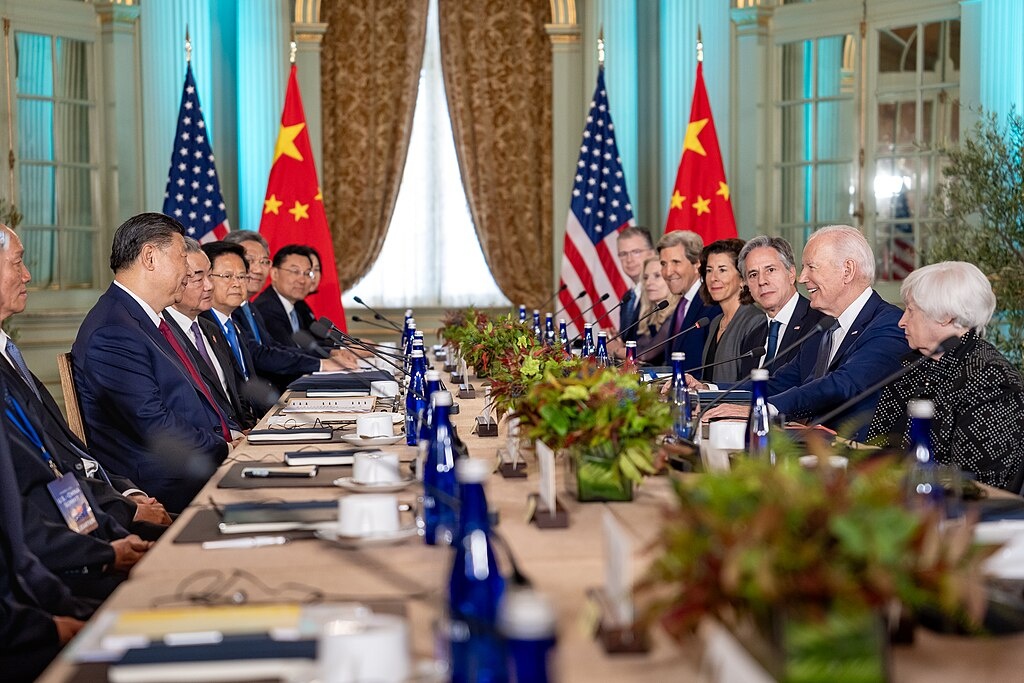
No First Use Can Still Help to Reduce US-China Nuclear Risks
Adam Mount
July 2, 2024
This report is simultaneously published by the Asia-Pacific Leadership Network, Nautilus Institute, and the Research Center for Nuclear Weapons Abolition, Nagasaki University (RECNA).
It was first published in the Journal for Peace and Nuclear Disarmament.
Acknowledgements: This article was commissioned by the Asia-Pacific Leadership Network.
Abstract
Keywords: nuclear; no first use; China
Authors’ Profile:
Full text (PDF) is here.
The views represented herein are the author’s own and do not necessarily reflect the institutional positions.
The page for this project is here.

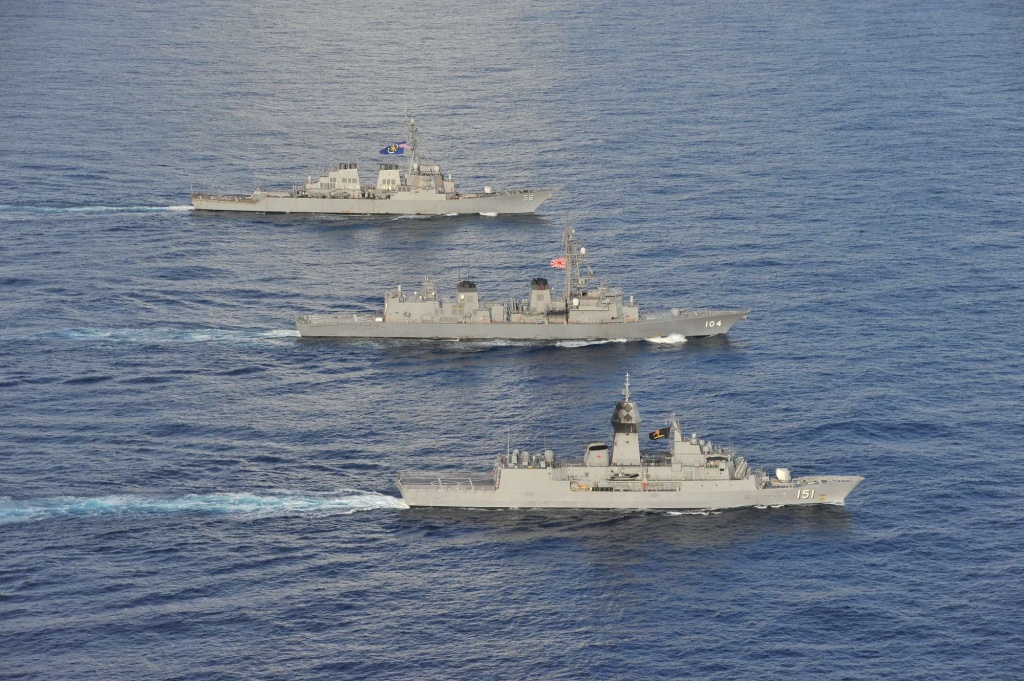
East Asia’s Alliance Dilemma:
Public Perceptions of the Competing Risks of Extended Nuclear Deterrence
Lauren Sukin and Woohyeok Seo
June 7, 2024
This report is simultaneously published by the Asia-Pacific Leadership Network, Nautilus Institute, and the Research Center for Nuclear Weapons Abolition, Nagasaki University (RECNA).
It was first published in the Journal for Peace and Nuclear Disarmament.
Abstract
Keywords: nuclear; alliances; East Asia; proliferation; security
Authors’ Profile:
Woohyeok Seo is a Ph.D. Candidate in International Relations at the London School of Economics and Political Science in the United Kingdom.
Full text (PDF) is here.
The views represented herein are the author’s own and do not necessarily reflect the institutional positions.
The page for this project is here.

“World’s Fissile Material Data” 2024 [All Lists]
As was the case last year, the total amount of highly enriched uranium (HEU) declined but the total amount of separated plutonium increased, and the increasing tendency continues.
The total inventory of HEU was 1,255 tons, equivalent to 19,610 warheads (a decrease of 5 tons or about 70 warheads from last year). However, the overall rising trend in separated plutonium continues, with an increase of 7 tons in plutonium for civilian use, bringing the total inventory to 560 tons, equivalent to 93,270 warheads (an increase of 8 tons or about 1,270 warheads from last year). As a result, the total inventory amount increased to equivalent to 112,880 warheads, an increase of around 1,200 warheads from last year (111,680 warheads).
◆ The two images to the right can be enlarged by clicking on them. You can also view and download the following PDF versions.
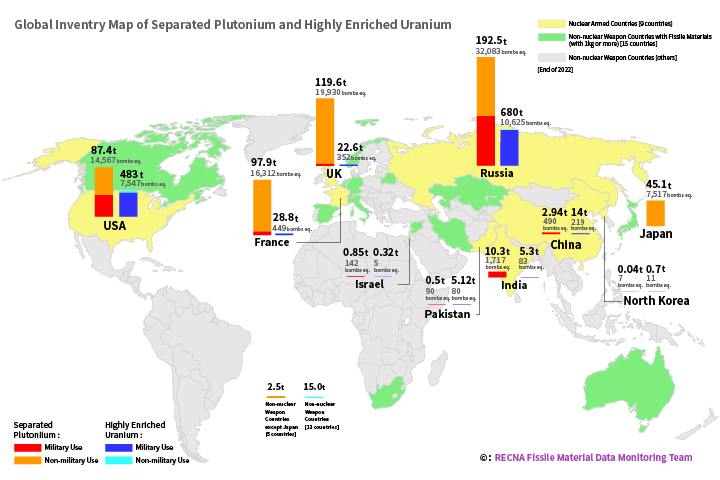 ・The 2024 Global Inventory Map of Fissile Material (PDF)
・The 2024 Global Inventory Map of Fissile Material (PDF)
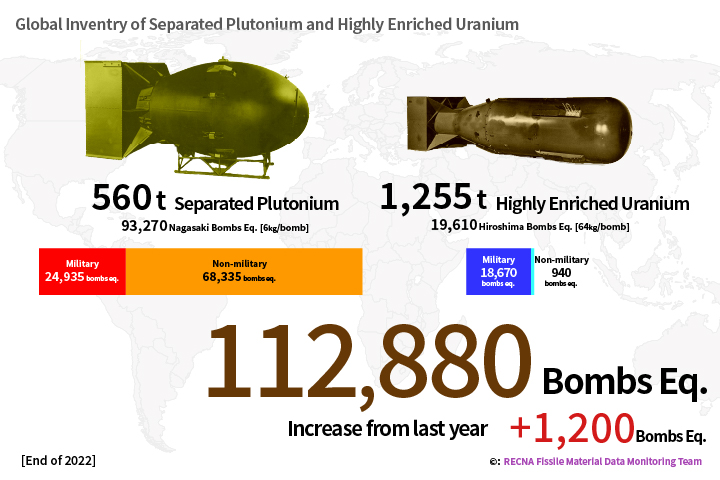 ・The 2024 Global Inventory of Fissile Material (PDF)
・The 2024 Global Inventory of Fissile Material (PDF)
◆ You can see the original data of the map from the following links.
・Global Inventory of Separated Plutonium
・Global Inventory of Highly Enriched Uranium
◆ You can see previous “World’s Fissile Material Data” from [All Lists].















